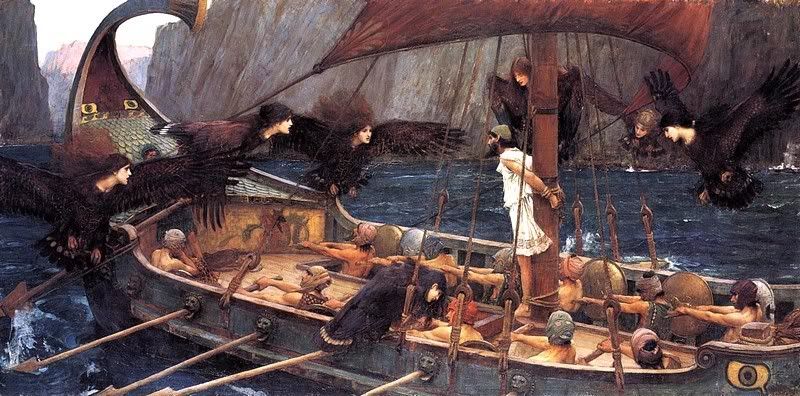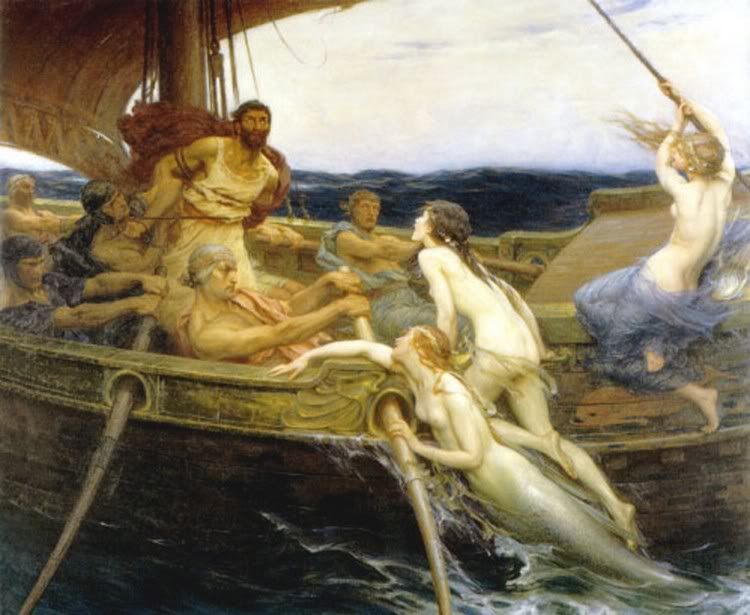 ('Ulysses and the Sirens', John William Waterhouse)
('Ulysses and the Sirens', John William Waterhouse)Sirens, like harpies (winged death-spirits), were part woman, part bird. In early Greek art they were mostly represented as having the body of a bird and a large woman head. Later, they became female figures with bird legs, with or without wings, playing a variety of musical instruments, especially harps.
In Greek mythology, they were two to five dangerous bird-women who lived on the three small islands of Sirenum Scopuli, a location surrounded by cliffs and rocks. Those who sailed near were compelled by the Sirens' enchanting music and voices to shipwreck on the rocky coast. This relates to the literary motif of harmful sensation, meaning the physical or mental damage that a person suffers merely by experiencing what should normally be a benign sensation. The term "siren song" refers to an appeal that is hard to resist but that, if heeded, will lead to a bad result.
In his journey, Jason encountered the Sirens, but he had been warned by Chiron (a centaur, healer, astrologer, and oracle) to bring along Orpheus (the best of poets and musicians). When Orpheus heard the Sirens' voices, he drew out his lyre and played his music more beautifully than they, drowning out their voices.

('Odysseus and the Sirens', Herbert James Draper)
Odysseus (or Ulysses) was also one to face the Sirens. On Circe's advice (a queen goddess, sometimes a nymph or a sorceress, who lived on the island of Aeaea), Odysseus had all his sailors plug their ears with beeswax, but he was curious as to what the Sirens sounded like, so he was tied to the mast. When he heard them, he ordered and begged his men to untie him, but they did not -as he would have plunged himself into the water and perished- and everyone survived.
 ('A mermaid', John William Waterhouse)
('A mermaid', John William Waterhouse)The English word for mermaid is a compound of "mere" -the Old English word for "sea"- and "maid". However, the fact that in some languages (Spanish, French, Italian, Polish, Romanian, Portuguese) it is very similar to the word "siren", creates confusion. In later folklore, Sirens have been represented as mermaids or naiad-like (water nymphs), contributing to the confusion.
Mermaids are mythological aquatic creatures, with a human torso and the lower half of an aquatic creature. Like Sirens, Mermaids would sing to people in an enchanting way, to distract them and cause them to leave the ship or crash it. They are also said to take humans down to their underwater kingdoms, forgetting that they cannot breathe underwater, or they drown them on purpose, out of spite. Various cultures throughout the world have similar figures.

('Fisherman and the siren', Knut Ekwall)
('The siren', John William Waterhouse)



No hay comentarios:
Publicar un comentario